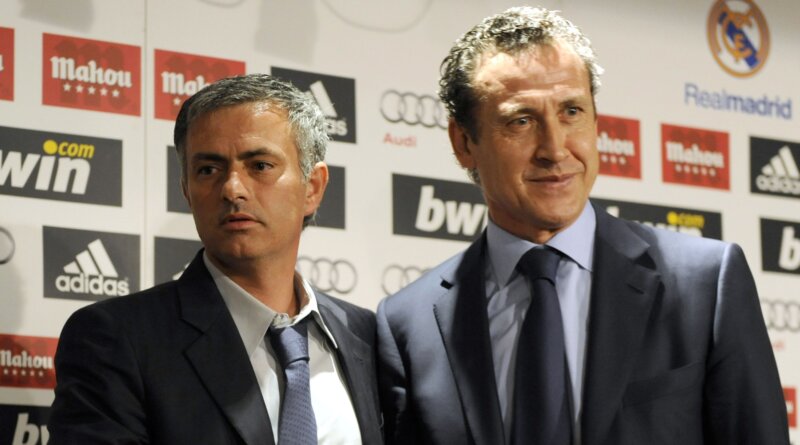Jose Mourinho’s Popularity Triggered Valdano’s Exit at Real Madrid
Jose Mourinho was at the center of a power struggle at Real Madrid that ultimately led to Jorge Valdano’s departure as general manager in 2011, according to Valdano himself. The ex-Real Madrid chief has openly discussed how Mourinho’s growing influence and popularity with both fans and club president Florentino Perez set the stage for a decisive change behind the scenes.
Jose Mourinho’s Influence at Real Madrid
Jose Mourinho arrived at Real Madrid in 2010, bringing with him an intense personality and a reputation for success. Within months, he became a dominant force at the club, both on the pitch and in the boardroom. Jorge Valdano, who was serving as Real Madrid’s general manager, has now revealed that Mourinho’s increasing popularity was a critical reason behind his own exit.
In a recent interview, Valdano stated, “There was a clear disagreement between myself and Mourinho. He quickly became more popular than I was, especially in the eyes of Florentino Perez. That made my position untenable.” Valdano explained that his footballing philosophy clashed with Mourinho’s more pragmatic and combative style, leading to mounting tension at the Bernabeu.
Clash of Philosophies: Valdano vs. Mourinho
The clash between Valdano and Mourinho was more than just about popularity; it represented a larger debate about Real Madrid’s identity. Valdano, a traditionalist, prioritized attacking, possession-based football and believed in the ethos of the club’s storied past. Mourinho, on the other hand, was focused on results, often employing defensive tactics and a siege mentality to galvanize both players and supporters.
Valdano recalled meetings with Perez, in which he tried to express his concerns about Mourinho’s approach. “I felt the club was losing its essence, but Mourinho’s charisma and ability to win over everyone made it impossible for my voice to be heard,” he said. Ultimately, the board sided with Mourinho, leading to Valdano’s dismissal at the end of the 2010-11 season.
Florentino Perez’s Decisive Move
For Florentino Perez, the decision to back Mourinho over Valdano was a calculated risk. While Valdano’s deep connection to Real Madrid as a player and executive was undeniable, Mourinho promised—and eventually delivered—a competitive edge that Perez craved after years of falling short in Europe. Perez chose to prioritize immediate success, paving the way for Mourinho to take full control, and leaving no room for dissent from the club’s hierarchy.
Valdano described his exit as bittersweet: “I understand the president’s choice. Football is about winning, and Mourinho brought that mentality. Still, it was difficult to leave a club that means so much to me.”
Mourinho’s Legacy and Real Madrid’s Direction
Jose Mourinho’s era at Real Madrid was marked by controversy, but also by significant achievements. Under his leadership, the club ended Barcelona’s domestic dominance and secured a Copa del Rey title. His confrontational style, however, often had a polarizing effect—galvanizing fans and players, but also creating friction with club legends and top executives like Valdano.
After Valdano’s departure, Real Madrid became increasingly shaped by Mourinho’s image. The Portuguese coach’s strategies and man-management left a mark on the club’s culture that lasted long after his eventual exit in 2013.
The Aftermath: Lessons for Club Leadership
Valdano’s story is a reminder of the delicate balance between tradition and innovation at major football clubs. Leaders must weigh the value of club identity against the need for immediate results. In the case of Real Madrid, the decision to back Mourinho paid off in the short term but also led to internal divisions that took years to heal.
Opinion: Did Real Madrid Make the Right Call?
The saga between Jorge Valdano and Jose Mourinho highlights the complexities of leadership at football’s elite level. While Perez’s decision to side with Mourinho delivered trophies and restored Real Madrid’s competitive edge, it also cost the club a respected voice of tradition. In retrospect, the move underscored the reality that, in modern football, success often comes at the expense of harmony. For Real Madrid, the legacy of this power struggle serves as both a warning and a lesson for future club management.
For more updates from the world of football and the latest Real Madrid news, visit our homepage for more news.
Your global gateway to nonstop football coverage:
News Goal
Share this content:

